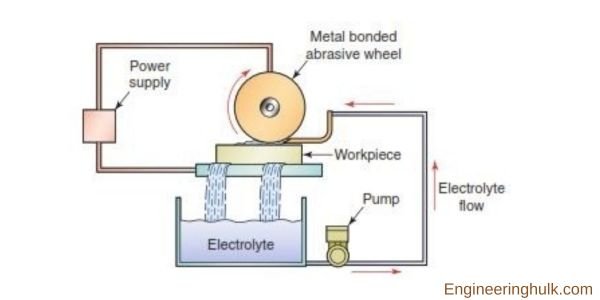Table of Contents
The National Institute of Technology (NIT) is a network of 31 publicly funded, autonomous institutions located in India. Established as Regional What Is The National Institute Of Technology (NIT)?
The National Institute of Technology (NIT) is a group of public technical universities in India that were established as Regional Engineering Colleges (RECs) and later upgraded to the status of National Institutes of Technology (NITs) through an Act of Parliament in 2007. There are a total of 31 NITs in India, located in different parts of the country. NITs are considered to be among the top technical institutes in India and are known for their high-quality education and research facilities. They offer undergraduate, postgraduate, and doctoral programs in various fields of engineering, science, and technology. NITs also have a strong focus on industry collaboration and offer internships and placements to their students. Admission to NITs is highly competitive and is based on merit, with candidates being selected through national-level entrance exams such as the Joint Entrance Examination (JEE) Main and the Graduate Aptitude Test in Engineering (GATE). The National Institute of Technology (NIT) offers a wide range of courses at the undergraduate, postgraduate, and doctoral levels in various fields of engineering, science, and technology. Some of the courses offered by NITs include: 1. Bachelor of Technology (B.Tech): NITs offer B.Tech programs in various engineering disciplines such as computer science, electrical engineering, mechanical engineering, civil engineering, and chemical engineering. 2. Master of Technology (M.Tech): NITs offer M.Tech programs in various engineering disciplines as well as in other fields such as management, design, and environmental science. 3. Master of Science (M.Sc): NITs offer M.Sc programs in various scientific disciplines such as physics, chemistry, and mathematics. 4. Doctor of Philosophy (Ph.D.): NITs offer Ph.D. programs in various engineering and scientific disciplines, as well as in management and humanities. In addition to these courses, NITs also offer dual degree programs, which allow students to pursue both a B.Tech and an M.Tech degree concurrently. Admission to NITs is highly competitive and is based on merit, with candidates being selected through national-level entrance exams such as the Joint Entrance Examination (JEE) Main and the Graduate Aptitude Test in Engineering (GATE). Graduates of the National Institute of Technology (NIT) have a wide range of career opportunities available to them. NITs are known for their high-quality education and research facilities, and as a result, their graduates are highly sought after by employers in the engineering, science, and technology fields. Some career options for NIT graduates include: Engineering: NIT graduates with a degree in engineering can find jobs in a variety of industries, including manufacturing, automotive, aerospace, construction, and energy. They can also work in research and development roles in companies or in government agencies. Science: NIT graduates with a degree in science can find jobs in research and development roles in companies or in government agencies. They can also work in industries such as pharmaceuticals, biotechnology, and environmental science. Technology: NIT graduates with a degree in technology can find jobs in a variety of industries, including information technology, software development, and telecommunications. They can also work in research and development roles in companies or in government agencies. Management: NIT graduates with a degree in management can find jobs in a variety of industries, including finance, marketing, and human resources. They can also work in management roles in government agencies or in the non-profit sector. NITs also have a strong focus on industry collaboration and offer internships and placements to their students. This can provide graduates with valuable work experience and help them to secure employment after graduation. The National Institute of Technology (NIT) is considered to be one of the best technical institutes in India for several reasons: High-quality education: NITs are known for their high-quality education and research facilities. They offer a wide range of undergraduate, postgraduate, and doctoral programs in various engineering, science, and technology fields and are known for their rigorous academic curriculum. Strong focus on industry collaboration: NITs have a strong focus on industry collaboration and offer internships and placements to their students. This helps to provide students with practical experience and helps to prepare them for employment after graduation. Strong faculty: NITs have a strong faculty comprising experienced professionals and researchers who are experts in their fields. This helps to provide students with high-quality instruction and guidance. Research opportunities: NITs provide students with ample opportunities to engage in research, either through independent study or collaborative projects with industry partners. This helps to provide students with a strong foundation in research skills and helps to prepare them for careers in research and development. Strong alumni network: NITs have a strong alumni network comprising graduates who have gone on to have successful careers in various fields. This can provide students with valuable networking opportunities and help them to secure employment after graduation. The National Institute of Technology is a great institution for students who want to pursue higher education in various fields. It provides excellent resources and support for students through its highly qualified faculty, modern facilities, and vast library resources. It also provides many opportunities for students to engage in research and practical activities, as well as having links to various industries. The National Institute of Technology is ideal for those looking to study and further advance their knowledge in various disciplines. Answer: NIT stands for National Institute of Technology. It is a system of publicly-funded technical institutes of higher education in India. Answer: There are currently 31 NITs in various states in India. Answer: NITs offer undergraduate, postgraduate, and doctoral courses in engineering, science, technology, and management. Answer: Admission to NITs is based on merit and is conducted through the Joint Entrance Examination (JEE). Answer: The eligibility criteria for NITs vary based on the course chosen. Generally, an applicant must have passed 10+2 with at least 75% marks in aggregate. Answer: To be eligible to apply to NIT, applicants must have completed their Higher Secondary Education with a minimum aggregate of 55% marks in Physics, Chemistry, and Mathematics. They should have qualified in JEE Main or any other state-level engineering entrance exam. NIT offers a variety of undergraduate, postgraduate, and doctoral programs across a wide range of disciplines, including Engineering, Science, Technology, Management, Humanities, and Social Science. Some of the popular courses offered by NIT include B.Tech, M.Tech, MBA, MCA, M.Sc, and Ph.D Answer: The fees for courses offered by NIT vary depending on the course and the type of institute. Generally, the fee for B.Tech courses ranges from Rs. 1.2 lakhs to Rs. 1.8 lakhs per annum, the fee for M.Tech courses ranges from Rs. 1.2 lakhs to Rs. 2.2 lakhs per annum, and MBA courses’ fees range from Rs. 1.5 lakhs to Rs. 3 lakhs per annum. Answer: Applicants can apply for NIT through the official website. They must register and fill in the application form with all the necessary details. Once the form is submitted, applicants must pay the application fee and submit the relevant documents. Answer: The selection process for NIT varies depending on the course. For admission to B.Tech courses, applicants must appear for JEE Main and make it to the cut-off list. For admission to M.Tech courses, applicants must appear for GATE and make it to the cut-off list. For admission to MBA and MCA courses, applicants must appear for CAT and make it to the cut-off list. Answer: NIT stands for National Institute of Technology and is an institute of higher education established by the Government of India to provide quality technical education to students. NITs are the premier technical institutes in India and offer undergraduate, postgraduate, and doctoral programs in engineering, technology, and science. Answer: Admission to NITs is based on the student’s performance in either the Joint Entrance Examination (JEE) Main or the Graduate Aptitude Test in Engineering (GATE). For undergraduate courses, students must appear for the JEE Main, and the top-performing students are selected based on their performance. For postgraduate studies, admission is based on the GATE score of the student. Answer: To be eligible for admission to NITs, students must have passed their 10+2 exams with a minimum of 60% marks in aggregate in Physics, Chemistry, and Mathematics. For undergraduate courses, students must appear for the JEE Main. For postgraduate studies, the minimum eligibility requirement is a Bachelor’s degree in Engineering/Technology from a recognized University/Institute. Answer: NITs provide excellent facilities to their students. These include modern lecture halls, well-equipped laboratories, hostels, a cafeteria, a library, sports facilities, and internet access. NITs also provide financial assistance to their students through scholarships, loans, and fee waivers. Answer: NITs are well known for the quality of education and training they provide. Students who graduate from NITs are highly sought after by employers in India and abroad. NIT graduates are employed in leading companies in India and abroad in various IT, engineering, manufacturing, finance, and consulting sectors. Answer: The acceptance rate for NIT varies from one institute to another. Generally, the acceptance rate for NITs is between 10-25%. It is important to note that the acceptance rate also changes yearly. Answer: The average SAT score for admission to NIT varies from one institute to another. Generally, the average SAT score required for admission to NITs is between 1100-1300 Answer: The cost of attending NIT varies from one institute to another. Generally, the cost of attending NITs is between Rs. 1 lakh to Rs. 10 lacks, depending on the institute and the course selected. Answer: The average GPA required for admission to NIT varies from one institute to another. Generally, the average GPA required for admission to NITs is between 6-7 Answer” Yes, there is an entrance exam for admission to NIT. The entrance exam is called the Joint Entrance Examination (JEE). It is conducted by the National Testing Agency (NTA) and is held twice yearly.What Courses Offer By the National Institute Of Technology (NIT)
Career Opportunities Of The National Institute of Technology
Why NIT Is the Best?

NIT FAQ’s
What is the full form of NIT?
How many NITs are there in India?
What courses are offered at NITs?
What is the admission process for NITs?
What are the eligibility criteria for NITs?
What are the admission requirements for NIT?
What are the different courses offered by NIT?
What are the fees for the courses offered by NIT?
How can I apply for NIT?
What is the selection process for NIT?
What is NIT?
What is the admission process for NIT?
What are the eligibility criteria for NIT?
What are the facilities provided by NIT?
What are the job opportunities after studying at NIT?
What is the acceptance rate for NIT?
What is the average SAT score for admission to NIT?
What is the cost of attending NIT?
What is the average GPA required for admission to NIT?
Is there an entrance exam for admission to NIT?






























